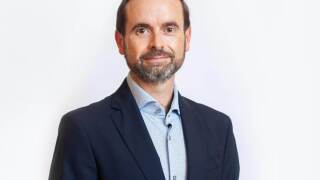When Susanna Kass started as a computer scientist in the IT industry 32 years ago, the term data centre didn’t exist.
Since then, though, the data centre industry has come into its own and demand for data centres has grown globally and exploded with AI in recent years.
According to McKinsey research, there were 209 data centre deals in 2021 with an aggregate value of more than $48 billion, up from 40% in 2020, when the deals were worth $34 billion. In the first half of 2022, there were 87 deals, with an aggregate value of $24 billion.
“Data centre [industry] needs young talents to infuse sustainable change to invert status quo,” Kass says of the industry.
Yet the industry faces a unique dilemma. The data centre industry comprises an older population and a lack of young people aware of our industry.
The Broadgroup Talent in Tech initiative aims to address that problem. The idea was born by Susanna Kass and the Broadgroup leaders to introduce an initiative aimed at connecting young people to data centre professionals. The idea was to introduce the design, build, operate lifecycle of the cloud and AI data centre industry.
Through that, the group invites young talents local to each event to attend through sponsorships from the data centre hyperscalers and cloud providers, nurturing a pathway for young talent to emotionally connect with leaders in the industry.
Kass serves as board chair of the initiative, leading customised mentor and sustainability talent workshops and collaborating with the sponsors to mentor the young talent attendees.
An ageing industry
On the significance of the initiative, Kass believes it is essential to address the problem of an ageing data centre workforce, given that most of those within said industry fall into the “advanced age” category of over 55.
Zippia estimates data centre technician demographics and statistics in the US by using a database of 30 million profiles. It estimates that 26.9% of all data centre technicians are women, while 73.1% are men.
The average data centre technician is 43 years old while senior management is over 53 years old.
The most common ethnicity of data centre technicians is white (64.1%) followed by Hispanic or Latino (12.7%), Black or African American (9%) and Asian (8.7%).
At a recent UN Youth Summit, Kass was asked what the data centre industry would look like 50 years from now.
“I do not know how to respond to that question,” she says.
“I got jolted as none of us knew the answer when we designed and built new Gigawatts of data centres.
“The industry needs to be awakened to make a sustainable difference today by embracing young talent. Broadgroup certainly has the vision, the platform and the leadership to contribute to our industry.”
The initiative had an initial soft launch at Datacloud Global Congress in Monaco earlier this year before being officially unveiled at Datacloud USA in Austin in September and a successful introduction at ESG Congress in Oslo, Norway.
Kass believes that organisations can thrive where diversity is present – something that is a staple at Datacloud events.
“Multiple people come here to share their opinions and Datacloud is a haven for all of us to come together and share our experiences,” she says.
UN role
Around a decade ago, Kass was invited to a meeting about the UN Sustainable Development Goals (SDG).
“I felt the goals were very unifying,” she says.
“But on my way out I was asked about the data centre industry’s response to the SDG goals, and I said as a COO of eBay International at the time that I do not use it. The data centre industry is not aware of the Goals.”
Kass worked hard with the hyperscalers and data centre pioneers as data centre advisor to the UNSDG program on sustainability data centre growth, the strategic interests followed by corporate pledges on carbon neutrality and the industry. The UNSDG goals further head of states to reach 1.5 degrees Celsius of the Paris Agreement and began to make sense for global organisations.
“Instead of verbalising it, I wrote a whitepaper, and it maps out the UN SDG goals specifically for the data centre industry,” says Kass.
Sustainability literacy is natural for young talents hence the data centre needs to embrace young talent to join the workforce to have a transformational leadership change.”
Kass believes that over the last decade, we have seen numerous individual technologies that improve energy efficiency and higher performance yields but now we must create sustainable systems within them.
She thanks her daughters for helping her to understand that there are planet and humanity issues far more than generating balance sheet results for an organisation, which tends to primarily focus on income, operating profit, growth, and market share rather than environmental and social issues caused by data centres.
“What we should be measuring is the social cost of ownership,” she says.
“That’s where the foundation of sustainability comes in, because if you start thinking beyond quarterly performance, and begin considering the social and environmental aspects – this enables generations to survive and thrive beyond the lifetime.”
The UN SDG goals have now been understood in the sustainable data centre and ICT sector and it is, according to Kass, in line with the interests of the data centre industry.
“I cannot be prouder that the data centre industry has embraced the UN SDG goals as a blueprint,” Kass says.
“I am grateful the data centre pioneers for 63.8 Gigawatt of renewable energy procurement to green global data centres; designing 24/7 Carbon Free Energy Net Zero operations, replenishing water more than the data centre consumed, using zero embodied carbon materials, reusing emissions as a thermal carrier for heat recovery to social communities and reducing emissions with carbon capture globally for data centre fleet.”






